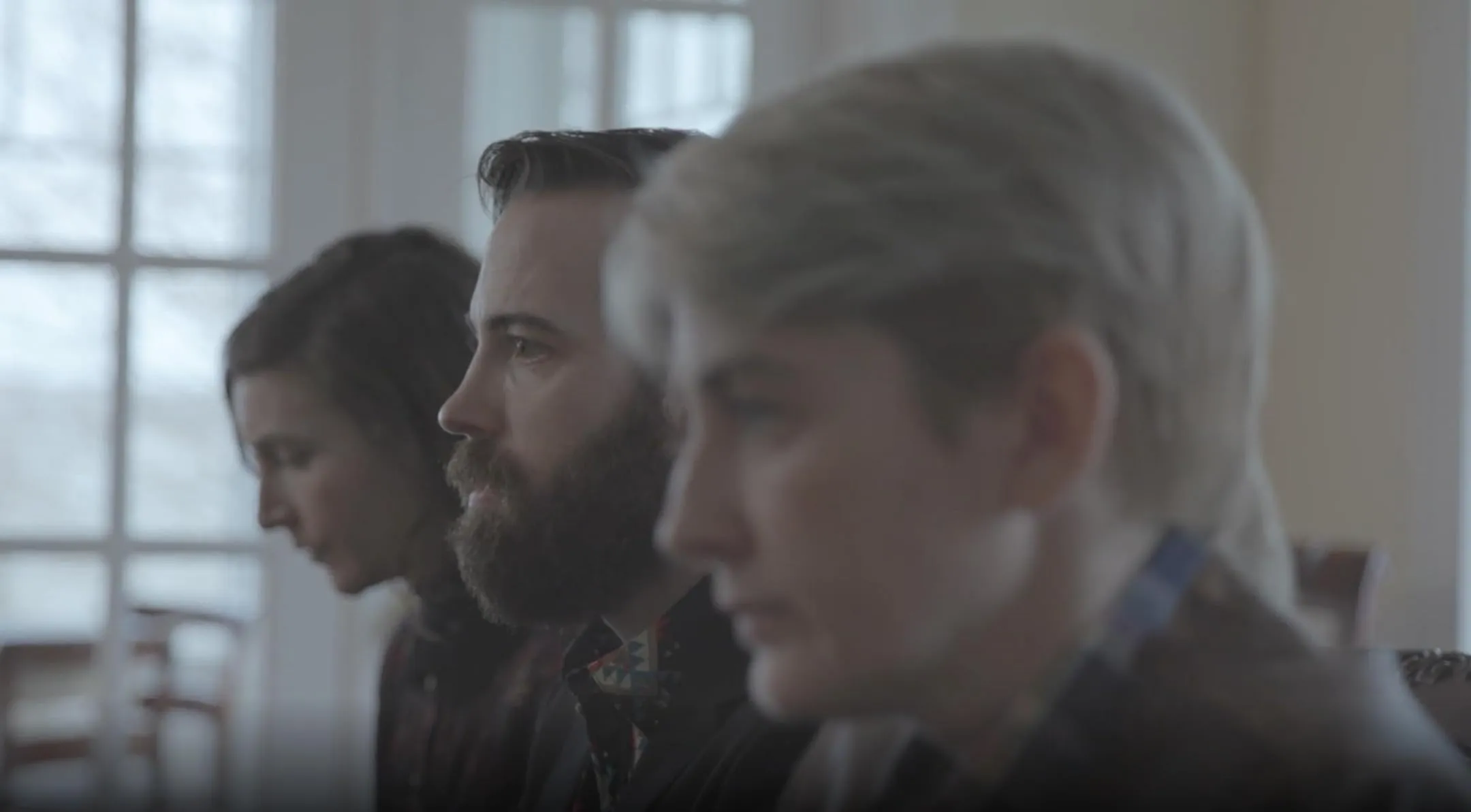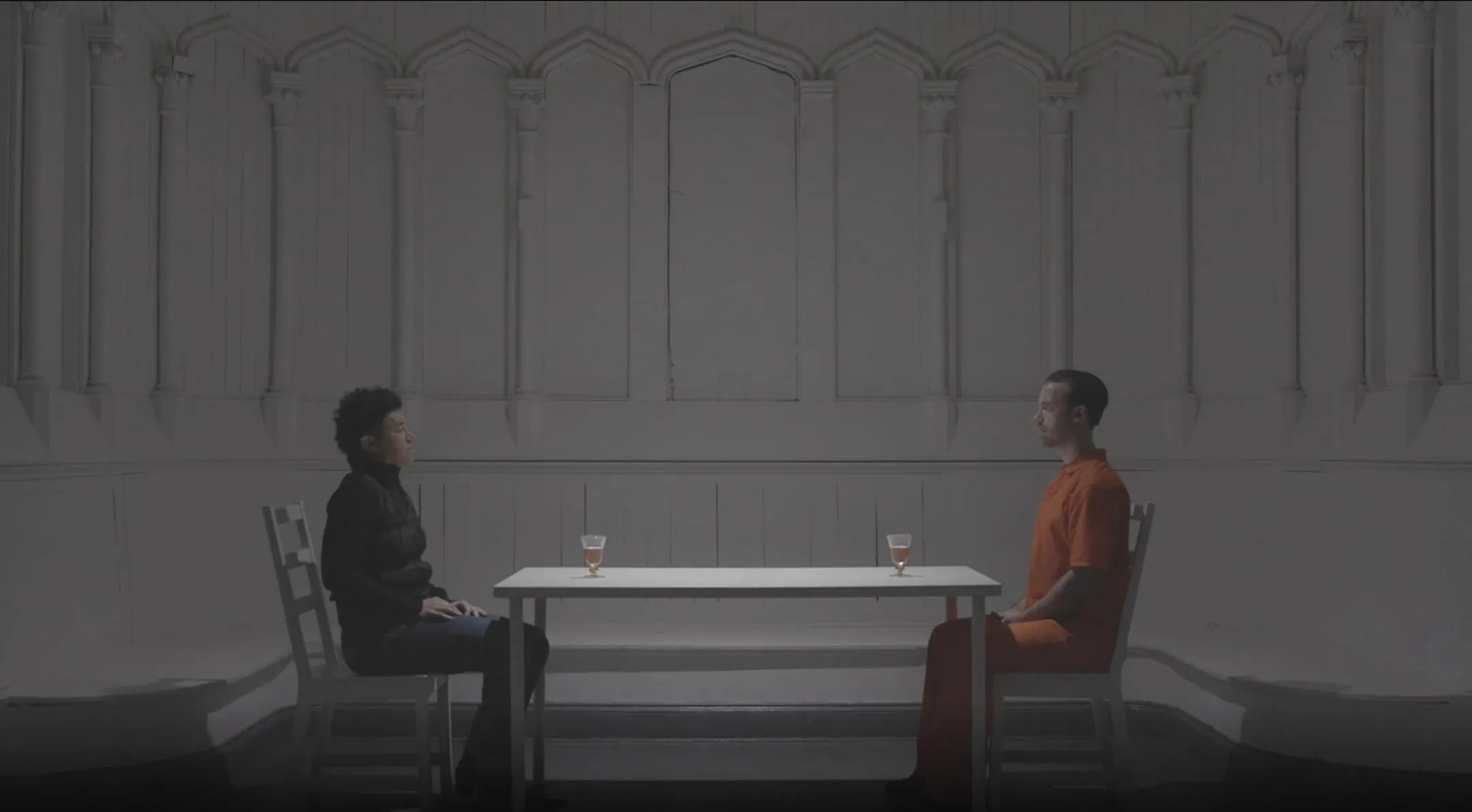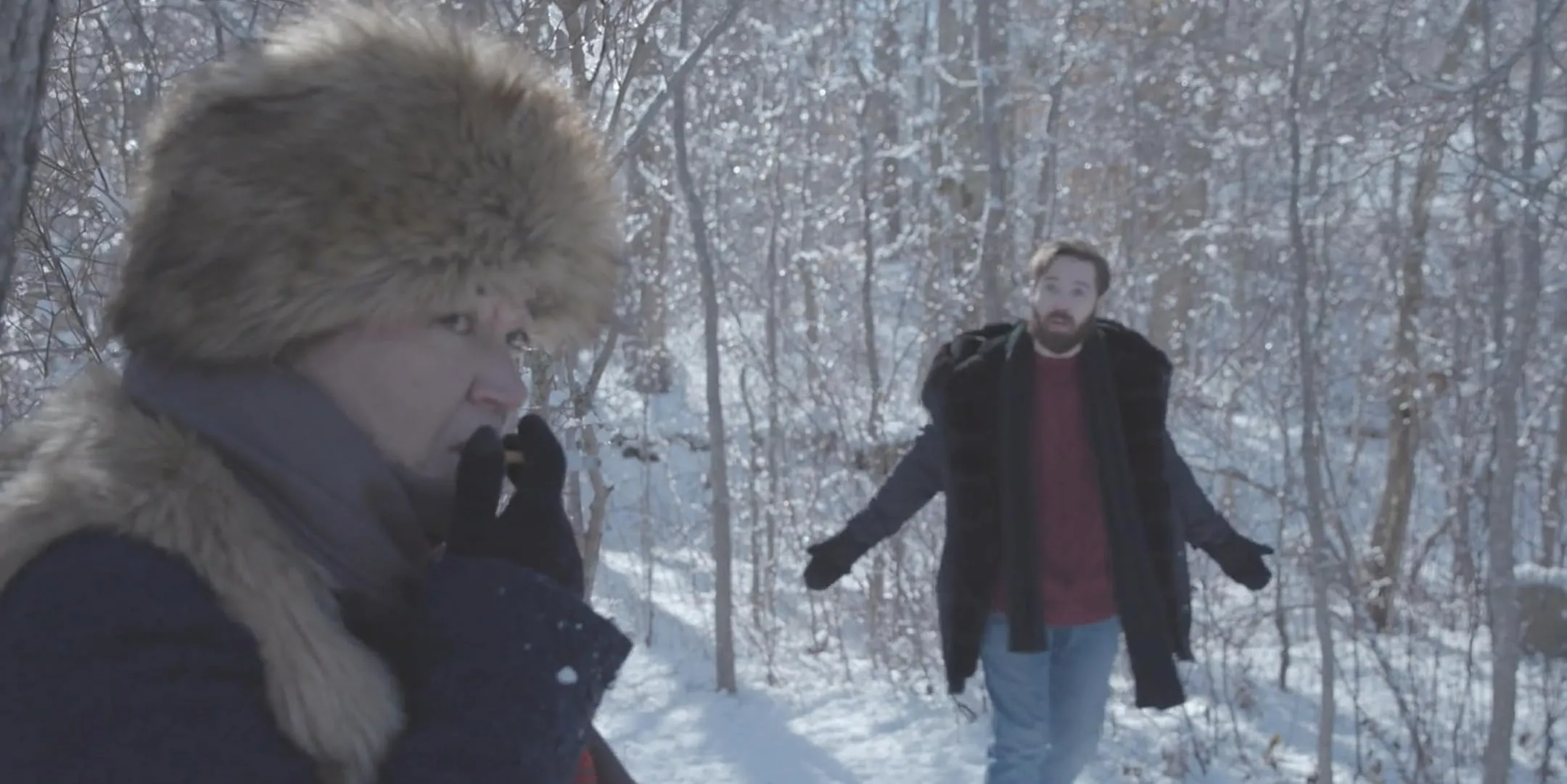Some stories feel like they are set in a pressure cooker, and Anna Brenner’s The Karamazovs bolts the lid on tight from the first frame. We are dropped into a bleak, wintery scene at an isolated oceanfront home, a setting so cold it feels like it seeps through the screen. This is the dying ground of Fyodor, a patriarch whose spite is the only thing keeping him warm.
His impending death has summoned his three estranged children, each carrying their own baggage. There is the scheming Dmitri, a brother desperate for inheritance money to solve his problems. He is joined by his sisters: Viv, a disillusioned activist filmmaker, and Aly, who seeks peace within her religion.
Dmitri’s demand for cash is the lit match thrown into a room filled with emotional gasoline. The resulting fire is inevitable, but when it culminates in Fyodor’s murder, the film shifts from a fight over money to a desperate scramble for psychological survival.
Portraits of Decay
The power of this story rests entirely on the shoulders of its broken characters. Dmitri, played by Ross Cowan, is the chaotic force pushing the narrative forward; he is a hustler whose greed and emotional blackmail pry open every family wound.
His sisters are foils to his fire. MK Tuomanen’s Viv is a queer artist weighed down by cynicism, while Rachael Richman’s Aly is a future nun whose faith is a fragile shield against the family’s toxicity. They represent a fundamental split in how to face a meaningless world.
Yet, the most crucial piece is Rami Margron’s Liz, the caretaker. She is our narrator, but she is no passive observer. Speaking directly to the camera, she guides us through a maze of fragmented memories, forcing us to question every scene she presents.
The film understands that its drama is internal. The direction leans on stark, revealing close-ups, letting the actors’ faces tell the story that words cannot. We see the pain, the flicker of old resentments, and the quiet desperation in their eyes.
The Confines of Memory
Brenner’s background in theater is evident in every choice, transforming the film into a tense chamber piece. The single location of the house feels less like a setting and more like a cage, forcing confrontations that the characters would rather avoid.
This claustrophobic design choice is incredibly effective. The cinematography captures the bleakness of the Martha’s Vineyard winter, creating an atmosphere that perfectly reflects the coldness within the family. The film’s most interesting technique is its narrative structure. By using Liz’s recollections to frame the story, the timeline is deliberately shattered.
We are not watching events unfold; we are trying to piece them together from biased testimony. This makes the viewing experience active. We are put in the position of an investigator, constantly sifting through subjective truths to understand what really happened during that fateful week.
An Old Story, A New Wound
What makes this adaptation potent is its understanding that family trauma is its own kind of inescapable inheritance. The murder mystery is a plot device, but it is not the point.
The real investigation is into the family’s damaged psyche, with Fyodor’s death simply being the event that forces a final, agonizing look at the damage he caused. Translating this story to a modern American setting with gender-swapped characters works so well because the core conflicts are timeless.
Greed, faith, and resentment feel immediate and raw in this new context. The film’s lasting impression is not about who committed the murder, but about the haunting realization that the true sentence for these characters is surviving the memories their father left behind.
Full Credits
Director: Anna Brenner
Writers: Anna Brenner, Rafael Jordan
Producers and Executive Producers: Aisha Jordan, Rafael Jordan
Cast: Rami Margron, Ross Cowan, MK Tuomanen, Rachael Richman, Ezriel Kornel
Director of Photography (Cinematographer): Tatiana Stolpovskaya
Editors: Yana Biryukova
Composer: Jordan McCree
The Review
The Karamazovs
A bold and theatrical adaptation, The Karamazovs succeeds as a claustrophobic psychological study. Its strength lies in its powerful performances and an intelligent, fragmented narrative that forces the viewer to become an active participant in piecing together the family's trauma. While its deliberate pacing and stage-like presentation may not suit everyone, it is a demanding and rewarding film that smartly uses its structure to amplify its chilling themes. It’s a haunting look at an inheritance of pain, where the real mystery is the human heart.
PROS
- A tense, claustrophobic atmosphere that is highly effective.
- Powerful, emotionally resonant performances from the entire cast.
- An intelligent narrative structure that uses an unreliable narrator to create intrigue.
- A successful and potent modernization of a classic literary work.
CONS
- The highly theatrical, dialogue-heavy style may not appeal to all tastes.
- Its fragmented timeline can be challenging for some viewers to follow.
- The deliberate pacing might feel slow for those expecting a conventional thriller.



















































